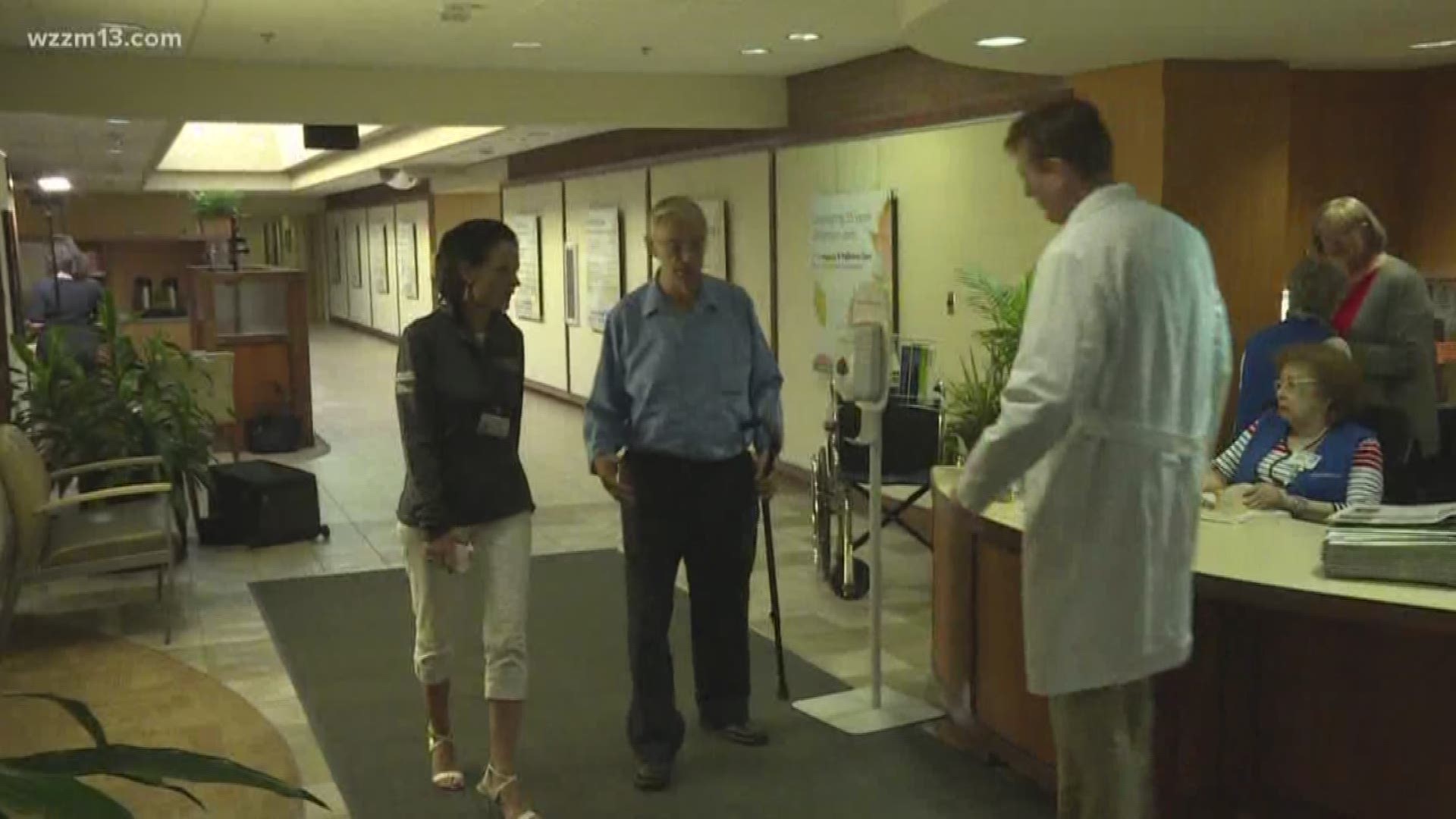Right now in the U.S. there are nearly 700,000 knee replacements every year and that number is expected to climb to more than 3-million in just 10 years.
A new device at North Ottawa Community Hospital is revolutionizing knee replacement surgery.
"I was super excited," said Dr. Rick Baszler. He is an orthopedic surgeon with Orthopedic Associates of Muskegon and he’s talking about the new Mako robot by Striker. Baszler says it is revolutionizing knee and hip replacement surgery.
With the help of the Mako robot, Dr. Baszler is able to take near perfect incisions. "The old way we used to do it, we were thinking in terms of millimeters. Now with robot assistance, I can think [in terms of a] tenth of a millimeter.
"We're taking out and shaving away a little bit less bone, so it is bone conserving so hopefully it will help minimize pain."
Dr. Baszler also says that precision is improving patient outcomes in more ways than one. "Patients are going home mostly the next day," he said. "A lot of them could probably go home the day of, but they're feeling better. They're taking Tylenol extra strength or very low-level narcotic as opposed to the heavier stuff."
Baszler says even physical therapists are noticing a difference. "They're seeing them at one and two weeks and they're saying 'oh my gosh Dr. Baszler.' This is a typical 6, 8, 10-week patient that they are seeing at two weeks as far as range of motion, less pain, less tissue swelling."
The Mako robot is also used for hip replacements.
Dan Brooks was surprised at how fast he was up and around after surgery. "They try and get you up right away and have you take 200 steps and I thought 'oh no.'" he said. "I took 400 steps and the doctor said 'I don't have any reason to keep you go home.'
"I haven't had pain since. Discomfort yes, but not pain."
In fact, Dan got the green light to head back to work just three weeks after having his hip replaced.
"Used to say 'oh you're going to need 2-3 months off for your knee or hip replacement,' now we're saying four to six weeks," said Baszler.
►Make it easy to keep up to date with more stories like this. Download the WZZM 13 app now.
Have a news tip? Email news@wzzm13.com, visit our Facebook page or Twitter.

